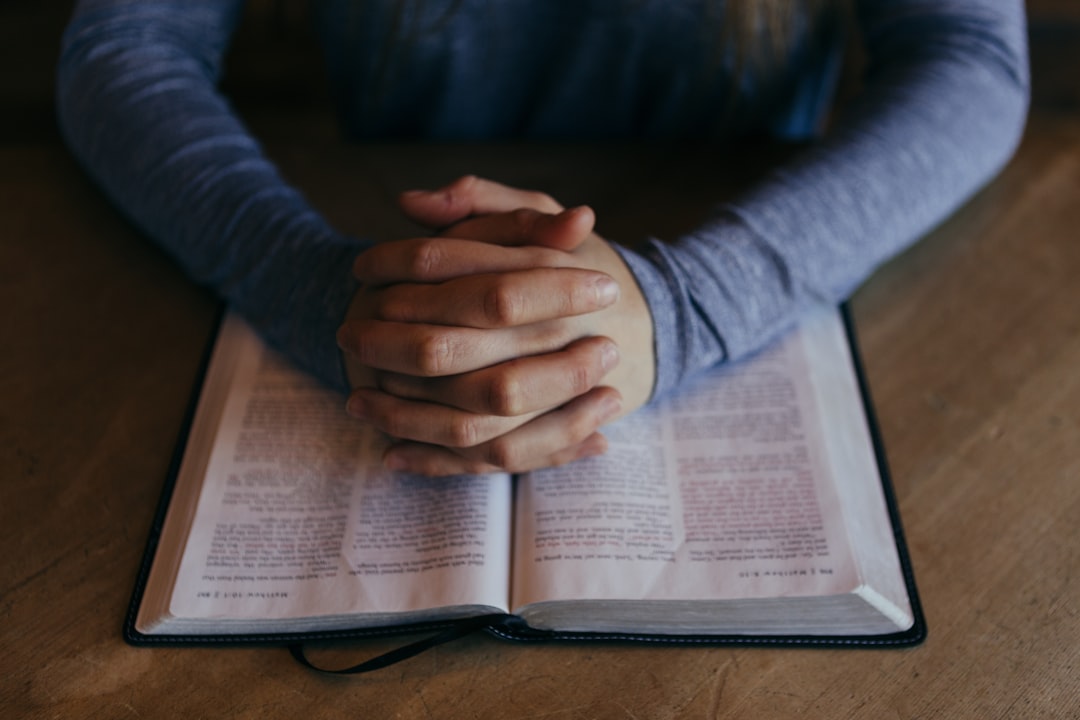Prayer is one of the most important pillars of Islam, offering numerous benefits for our spiritual, physical and emotional well-being. However, as a form of Ibadah, it must be performed correctly and sincerely. This guide covers everything you need to know about performing proper prayer, from ablution to supplication. Keep reading to ensure your worship is fulfilling and complete.
Understanding the Importance of Prayer in Islam

To truly understand the significance of proper prayer in Islam, it’s important to first acknowledge the role that prayer plays in the religion as a whole. In Islam, prayer, or salah, is considered one of the Five Pillars of Islam.
What does this mean? Essentially, the Five Pillars of Islam are considered the core beliefs and practices that are required of Muslims in order to fully practice their faith. Along with prayer, the Five Pillars include:
- Shahada: the declaration of faith in Allah and the Prophet Muhammad
- Zakat: giving to charity
- Sawm: fasting during the month of Ramadan
- Hajj: the pilgrimage to Mecca, Islam’s holiest city

As one of the Five Pillars, proper prayer is an essential part of a Muslim’s spiritual practice and worship.
But what does “proper prayer” actually look like in practice? It’s more than just reciting words or going through the motions. In fact, proper prayer in Islam involves a number of steps and rituals that are designed to help connect the individual to Allah and create a sense of inner peace and stillness.
Some of these steps include:
- Making sure to clean oneself before prayer through ablution, or wudu
- Facing Mecca, Islam’s holiest city, during prayer
- Beginning the prayer with a takbir, or declaration of Allah’s greatness
- Reciting specific prayers and verses, such as the bismillah and qiyam
- Performing specific movements and positions, such as bowing and prostrating
- Ending the prayer with the salaam, or greeting of peace
By following these steps and rituals, Muslims are able to create a sacred space and time for themselves to connect with Allah and experience the benefits of prayer, such as a sense of calmness, peace, and gratitude.
It’s important to note, too, that prayer is not just something that Muslims do on an individual level. Rather, prayer is a communal activity that brings together believers in a shared act of worship and submission to Allah. This sense of shared community and connection is a crucial aspect of the prayer experience, and one that is highly valued in Islamic culture.
In summary, proper prayer in Islam is a holistic practice that involves both individual and communal elements. By following specific rituals and steps, Muslims are able to connect with Allah, find inner peace and stillness, and strengthen their sense of community and shared purpose.
The Significance of Salah as the Pillar of Islam
As a central pillar of the Islamic faith, salah, or prayer, is of utmost importance to Muslims around the world. It is through salah that they are able to connect with Allah and seek His guidance and blessings. In fact, salah is the second most important act of worship that Muslims engage in after the declaration of faith.
As one of the five pillars of Islam, salah holds a special significance for Muslims. It is seen as a daily reminder of their devotion to Allah and a way to constantly maintain a connection with their Creator. Through prayer, Muslims reaffirm their submission to Allah and seek His forgiveness for their sins.
Salah is also seen as an act of spiritual purification, a way to cleanse oneself of impurities and seek Allah’s mercy and blessings. It helps Muslims to lead a more disciplined life, one that is centered on devotion and self-control. In this way, salah becomes a spiritual practice that helps Muslims to grow closer to Allah and strive for excellence in all aspects of their lives.

Additionally, salah helps Muslims to build a stronger sense of community by bringing them together in prayer. It provides an opportunity for Muslims to meet and interact with one another and for them to share in the blessings of their faith.
Overall, salah is an essential component of the Muslim faith, one which helps Muslims to establish and maintain a strong connection with Allah. It is a daily reminder of their devotion to Him and an opportunity to seek His guidance and blessings. By performing salah, Muslims reaffirm their commitment to their faith and to leading a life that is centered on submission to Allah.
Preparing for Prayer: Ablution and Cleanliness Guidelines
Before performing Salah, it is important to ensure that you are clean both physically and spiritually. This is achieved through ablution, or Wudu in Arabic. Ablution is the act of washing specific body parts in a particular order before prayer. This not only cleanses the body, but it also serves as a way to prepare oneself for the act of prayer and to show respect to Allah.
Here is a step-by-step guide to performing ablution:
- Begin by saying Bismillah, which means “In the name of Allah,” to initiate the process.
- Wash your hands three times, starting with the right hand.
- Rinse your mouth three times.
- Inhale water and blow it out of your nose three times.
- Wash your face three times, making sure to cover your entire face, including your hairline and beard.
- Wash your arms, starting with the right arm, up to the elbows three times.
- Wipe your head once with wet fingers, running them from the front of your head to the back and then back to the front.
- Wash your feet, starting with the right foot, up to the ankles three times.
It is important to note that all of these steps must be completed in order and without interruptions or breaks. If you are unsure of the correct way to perform ablution, there are resources available, such as online videos and guidance from your local mosque or imam.
In addition to ablution, it is recommended to wear clean and modest clothing when performing Salah. It is also important to choose a clean and quiet space to pray, free from any distractions.
« The Horn of Salvation: Understanding Its Meaning in Christianity
Exploring the Significance of Having Faith in Jesus in Your Spiritual Journey »
Taking these steps to ensure cleanliness and preparation before prayer allows for an uninterrupted and focused connection with Allah. It enhances the spiritual experience and reinforces the importance of prayer in daily life.
List of Keywords used:
- pray
- islamic prayer
- salah
- prayer steps
- how to pray
- daily prayer
- prayers in islam
- dua
- supplication
- spiritual practice
- islamic worship
- prayer rituals
- prayer guide
- prayer for beginners
- prayer time
- prayer positions
- prayer benefits
- prayer for peace
- prayer for strength
- prayer for guidance
- prayer quotes
- prayer verses
- sunnah prayers
- voluntary prayers
- obligatory prayers
- purification for prayer
- ablution
- wudu
- takbir
- bismillah
- qiyam.
The Step-by-Step Guide to Performing Salah
If you’re new to Islam or simply looking to brush up on your knowledge, understanding the proper way to pray is an essential aspect of your spiritual practice. In Islam, prayer is a fundamental act of worship second only to the declaration of faith in Allah. Thus, learning and understanding how to perform salah or prayer is crucial for every Muslim.
Here is a step-by-step guide to performing salah:
-
Make sure you are clean and have performed wudu: Before you start praying, it’s important to perform wudu or ablution first. This involves washing your hands, mouth, nose, face, arms, head, and feet. This ensures that you are in a state of physical and spiritual purity.
-
Face the Qibla: Stand facing the Qibla, which is the direction of the Ka’bah in Mecca, Saudi Arabia. This is the direction that all Muslims around the world face during their prayers.
-
Begin the prayer with the opening takbir: Raise your hands to your ears and say “Allahu Akbar” or “God is the Greatest.” This marks the beginning of the prayer and shows your readiness to communicate with Allah.
-
Perform the qiyam or standing position: While still facing the Qibla, recite the Fatiha and any additional surahs or verses of the Quran that you want to. During this time, you should stand with your hands folded across your chest.
-
Bow down and perform rukuh: Say “Allahu Akbar” and bow down with your hands on your knees. In this position, you should recite the proper supplications and glorify Allah.
-
Stand up straight again and perform the qawma: Say “Sami Allahu liman hamidah” or “Allah hears those who praise Him” and stand up straight again.
-
Prostrate in sajdah: Say “Allahu Akbar” and prostrate yourself fully, placing your forehead, nose, hands, knees, and toes on the ground. During this time, you should glorify Allah and recite the proper supplications.
-
Return to the sitting position: Say “Allahu Akbar” again and sit up, before repeating the process of prostration, sitting, and standing. You should repeat this process for all the required rak’ahs in the prayer.
-
Perform the final tashahhud: After completing all the required rak’ahs, sit back and recite the final tashahhud, which is a declaration of faith and blessing upon the Prophet Muhammad (peace be upon him).
-
End the prayer with the closing salam: Say “Assalamu alaikum wa rahmatullah” to your right and left sides, which signifies the end of the prayer.

Performing salah may seem overwhelming at first, but with practice, it will become second nature. Remember to keep a pure and humble heart, and to focus your mind on your connection with Allah during your prayers. By doing so, you’ll get the most out of this essential aspect of Islamic worship.
Common Mistakes to Avoid in Prayer
When it comes to prayer, it is important to be mindful of common mistakes that can hinder its effectiveness. Here are some common mistakes to avoid:
-
Rushing through prayer: It’s important to take your time when praying and really focus on your connection with Allah. Rushing through your prayer can make it feel more like a chore than a spiritual practice.
-
Lack of concentration: Prayer requires a clear and focused mind. Avoid any distractions and try your best to concentrate on your prayer.
-
Inappropriate clothing: It’s important to dress modestly and cleanly for prayer. Avoid revealing or tight clothing that can be distracting during your prayer.
-
Incorrect timing: Make sure to pay attention to the correct timing and direction of the qibla for prayer. This ensures that your prayer is valid and effective.
-
Ignoring posture: Proper posture is key for a successful prayer. Make sure to maintain the correct position during each step of the prayer, from standing to kneeling to prostrating.
-
Skipping purification: Before prayer, it is necessary to perform ablution or wudu to purify oneself. Skipping this step can make your prayer invalid.
-
Lack of intention: Before starting your prayer, take a moment to set your intention and connect with Allah. Without a clear intention, your prayer may lack focus and effectiveness.
By avoiding these common mistakes, you can strengthen your prayer practice and deepen your connection with Allah. Always strive to approach prayer with mindfulness, intention, and respect.
Dua and Supplication: Connecting with Allah through Prayer
Prayer in Islam is not just a ritual of physical movements, but it’s also an act of connecting with Allah through supplication and dua. Dua is the Arabic word for invocation or calling out to Allah, and supplication is the act of humbly asking for something. Both of these practices are an essential part of worship in Islam as they allow Muslims to strengthen their relationship with Allah and seek His guidance and support.

During Salah, Muslims recite prescribed verses from the Quran and perform various physical movements, but they also have the option to make personal supplications and dua in their native language. This allows them to share their thoughts, hopes, fears, and dreams with Allah, knowing that He is the only one who can help them.
Dua and supplication can be done anytime and anywhere, not just during Salah. Muslims are encouraged to make dua for themselves and others regularly, especially in moments of need or difficulty. There are many specific duas and supplications that Muslims can recite for particular situations, such as for good health, wealth, or protection.
One of the most powerful ways to connect with Allah through dua is to speak from the heart sincerely and with pure intentions. Allah knows what is in our hearts, and He always responds to the sincere supplications of His servants. Muslims are taught that they should never lose hope in the mercy and assistance of Allah and should always seek His guidance and support through dua and supplication.
In conclusion, dua and supplication are essential components of prayer and worship in Islam. They allow Muslims to connect with Allah and seek His guidance, mercy, and support. Whether it’s through reciting prescribed duas or invoking Allah with personal supplications, Muslims are encouraged to make dua part of their daily spiritual practice.












